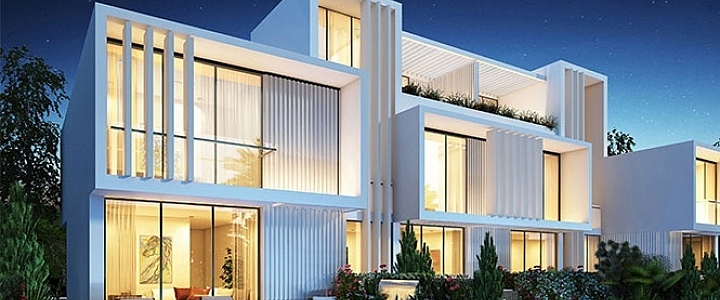
Dubai has established itself as one of the most prosperous and progressive cities in the world today in many aspects like international trade, tourism, multiculturalism, lifestyle1 or any other factor, Dubai is sure to score very high on each of them.
The city hosts a huge number of expats and is regularly visited by tourists as well. It has a welcoming environment and regulations, allowing everyone to become a part of the thriving economy. Due to these aspects, buying property in Dubai is highly desirable.
Property Market in Dubai
The property market of Dubai is one of the most attractive and lucrative ones present. Dubai is home to some of the world’s most trusted and accomplished real estate development companies, with DAMAC leading the way, which has led to a cluster of high-end and renowned projects.
One can find highly luxurious housing societies, buildings, and other projects in the city offering a dream lifestyle1. Along with that, there are also many wonders of architecture and planning which cover golfing societies, man-made lakes, and a whole lot more.
Since Dubai carries a huge potential as a property hub, it is understandable that its property prices are also higher than some other cities of UAE. One can be sure of finding the best lifestyle1 and lucrative returns on investment, but also should expect to pay a substantial cost for it.
But there is still no need to worry as the government of the UAE and its financial institutions have made it very easy for everyone to own a property anywhere in the country, including Dubai.
Investing in Dubai
From old residential areas like Deira and Bur Dubai to the high-end modern vicinities like Dubai Marina, Palm Jumeirah, and Al Sufouh, you will find a lot of choices for investing in Dubai real estate with varying attractions and costs.
The more you are willing to invest, the greater the amenities and attractive features you can get. Moreover, the commercial centers like the Business Bay and Downtown Dubai are ideal for anyone interested in setting up a workplace or looking for a bustling neighborhood.
Along with these areas, there are some upcoming residential vicinities like Dubailand, Dubai South, and Jebel Ali, which are at a manageable distance from the central locations of the city but are home to some prolific residential developments like DAMAC Hills and Akoya Oxygen. These vicinities and projects are hot-cakes for anyone looking for a high-end residence or a beneficial investment opportunity.
With all these choices, investors from all backgrounds and budget can be sure of finding the ideal location and property to invest in. The best thing to know is that most perfect vicinities offer freehold properties, so expats can also enjoy the benefit of owning a desirable property in Dubai. It is advised that expats should find out about the freehold areas in Dubai to know about the available options.
Regulations and Utilities in Dubai
The most relevant and influential authority that overlooks all the matters of property and real estate in the city is the Dubai Land Department (DLD). It overlooks all the process of development, buying & selling, registration, mortgage and every other aspect related to real estate.
Expats must know about this authority and all its regulations, as they are the ones that must be followed at every stage. The Real Estate Regulatory Agency (RERA), which is the most relevant authority if you are looking to buy a property through a mortgage, is also a part of the organizations forming the DLD.
Dubai Electricity and Water Authority (DEWA) ensures the provision of utilities in all parts of Dubai. The property owners also have to consider the additional costs they will have to pay for the utilities, which depend on the area and project. They can find out about the service charges they have to pay for any given property before making the final choice.
Mortgage Financing in UAE
Mortgage financing has been on the rise in almost all parts of the world, as it allows people with handsome annual incomes to buy the properties of their choice and pay the price in the form of easy installments.
This financing method can bring some of the most sought-after properties within your reach, while also allowing you to escape the burden of rental payments, which also don’t contribute towards long-term asset.
In UAE, you have the luxury of finding the best assistance in terms of mortgage rates, eligibility criteria, loan terms, early settlements, and other aspects which can help you get your dream home in Dubai with great ease.
Difference Between Conventional & Islamic Mortgage
A conventional mortgage is when a financial institution will lend you a loan and you will repay it along with a percentage of interest, which will count as profit for letting an investor borrow funds.
This mortgage is made up of a principal amount and the interest charged on that amount. Typically, you have up to 25 years to pay off a mortgage, which is why these loans are also known as repayment loans.
An Islamic mortgage is different from conventional mortgage since under the Law of Shariah, it is forbidden to charge interest on a loan. In this case, the lender will buy your property on behalf of you and will then lease or rent it back to the investor for a profit. A major benefit of Shariah-compliant home mortgage in Dubai is that the buyer does not have to pay interest payments as late fees, although the bank itself may charge a fee.
A type of Islamic mortgage is the Ijarah which is a form of off plan property mortgage in Dubai and other cities of UAE. This model is quite useful as you do not have to make any payments until the entire property is completed.
Difference Between Fixed or Variable Interest Rates
When it comes to property mortgage in Dubai, there are several different types that home buyers can avail.
Fixed Rate Mortgage
This type of mortgage locks the interest rate in for the full tenure of the mortgage. This allows you to know beforehand the exact amount of payment you will need to make throughout the entire loan term. Depending on your agreement with the lender, fixed rate mortgage may be paid off at any time without penalty or they may be closed, i.e. breakage cost will be applied if the mortgage is paid off before maturity.






Comments (0)
Leave a comment